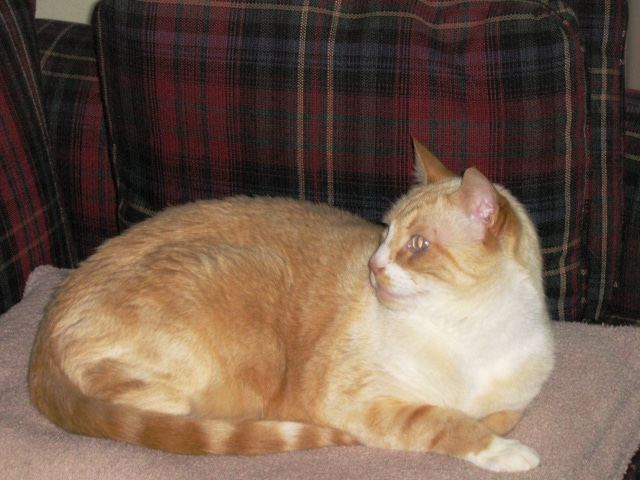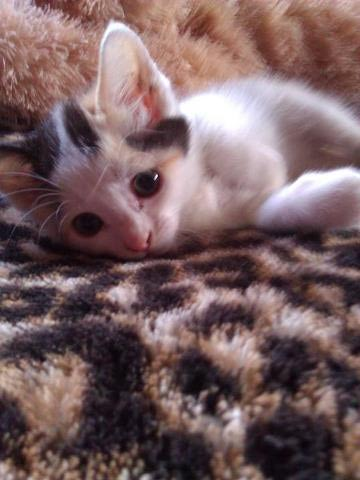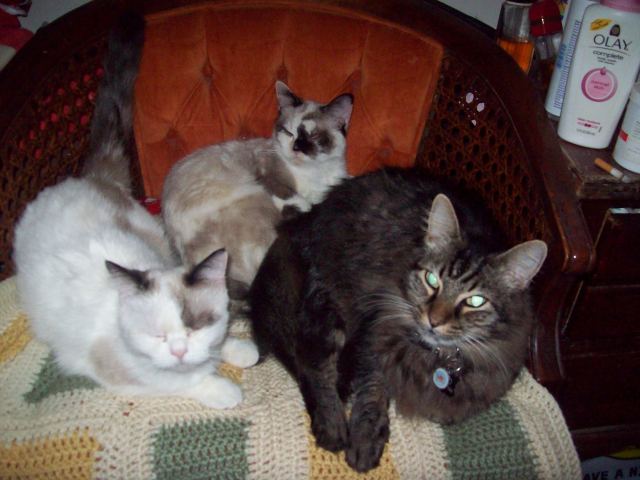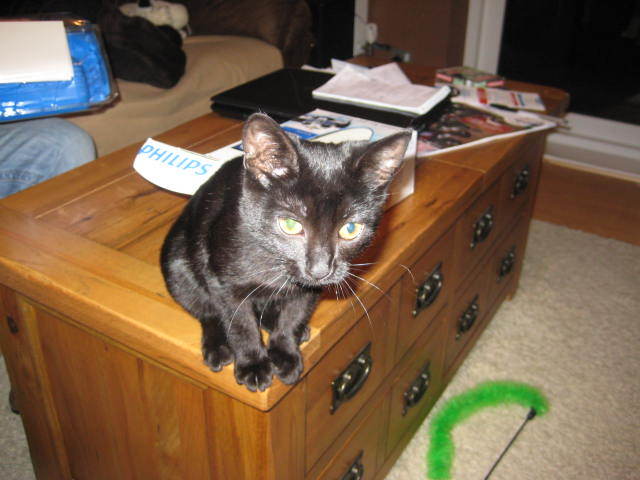QuestionOur 2 year old cat had an assisted birth at our veterinary surgeons 2 days ago. It was her first litter. The first kitten was described as a full breach and after great attempts by the vet to help the kitten out, our cat was taken away for a caesarian. We were telephoned a short while later to find that the vet had tried again and this time had been successful in assisting the kitten manually through the birth canal. Mum had one more kitten with similar assistance and then had one by herself. Things seemed fine that evening, but our cat's wellbeing deteriorated throughout the following day. She was finding it hard to walk and was only able to walk very slowly and her purring stopped and she became quite withdrawn. She was eating well but would take no water and the vet recorded a temperature of 39 degrees when we had her seen by the vet on-call yesterday evening. We have now been told that she is likely to have suffered nerve damage, either temporary or permanent, as a result of internal trauma during the delivery of her kittens. (She has not shown any interest in using her litter tray and has had her bladder emptied manually by the vet twice in the last 24 hours) We are preparing for the discovery that the damage is permanent and our vet has offered to help us to learn the technique of manually expessing her bladder, but we are hoping that the nerve damage will heal over time. Have you come across this situation yourself before? I guess we are hoping you can give us some advice and maybe some hope that things may improve for our lovely girl. Are there any remedies or dietary suppliments that may help the healing process? Thank you so much for any advice you can give.
AnswerHi Wendy. I'm so sorry to hear this has happened! I have never been in the position to have to manually empty a cat's bladder. I have had a cat who suffered nerve damage. I found her as a stray who was hit by a car and could only drag herself by her front legs. She had the opposite problem - she was incontinent and could not hold her bladder. In about three weeks, however, we saw some of this start to reverse. After a couple of months, there was a marked improvement, although you could still tell that there were some issues with her hind legs. However, in another few months, she seemed to have made a complete recovery.
You may want to consider giving your kitty B12, which helps to heal all sorts of damaged tissue. Although damaged nerve cells can't be replaced, B12 can help maintain the protective nerve sheath that surrounds them. One part of B12 that is especially available to the brain, spinal column and nerve endings is methylcobalamin (Methyl-B12). You can find it under the brand name Xobalin and some others, online and at natural supplement stores. A 10-lb cat would get 3mg (3000mcg) daily. If she's under 10 lbs (4.5 kg), then you could go with 1.5mg (1500mcg). Anything the body doesn't use is passed out in the urine. If you're unable to find methylcobalamin easily, you can give plain old B12. B12 is available in pet multi-vitamins such as Pet-Tinic, or your vet may give it as an injectible.

 Cant get cat to play
Question
Jules
My male cat Jules is 13. La
Cant get cat to play
Question
Jules
My male cat Jules is 13. La
 Stray kitten
Question
My Kitten
Hi i was wondering how much t
Stray kitten
Question
My Kitten
Hi i was wondering how much t
 Litter Box Behaviour
Question
All Kitties
Hello!
Im writing to you fo
Litter Box Behaviour
Question
All Kitties
Hello!
Im writing to you fo
 Cat in Heat with a little blood in her stool
Question
Millie Moo
Hi, I have a 5 month old female kit
Cat in Heat with a little blood in her stool
Question
Millie Moo
Hi, I have a 5 month old female kit
 The breed of my 5 1/2 month old kitten
Question
Edmund 5 1/2 months ol
Hi, my husband and I re
The breed of my 5 1/2 month old kitten
Question
Edmund 5 1/2 months ol
Hi, my husband and I re